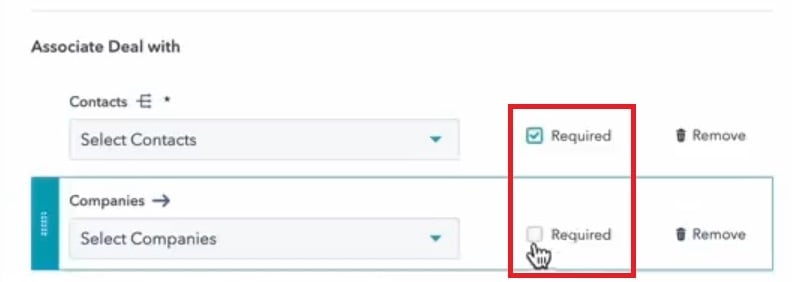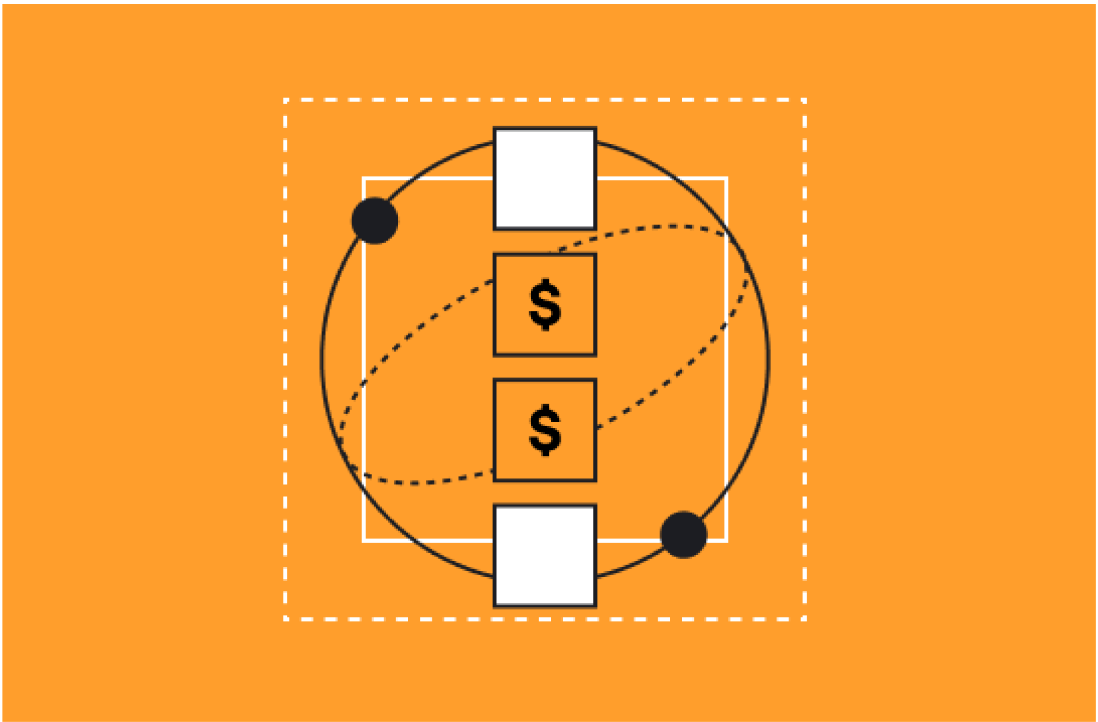As your company grows, it can become more and more difficult to ensure each record in your database has the proper associations. For example, a new deal should always be associated with a company in your database, just as a new company should be associated with a point of contact at that company.
Most CRM solutions, such as HubSpot and Salesforce, have simple processes for making this happen, but they don’t always get used properly by everyone. More importantly, HubSpot has historically not enabled required associations when creating a new record.
That’s about to change thanks to the launch of a new beta product update by HubSpot.
Here’s why you should require associations when a new record is created in your database, and how HubSpot’s new beta program can help.
Challenges with Records and Associations
Enforcing a data model is relatively simple at smaller companies because, typically, only a handful of people are responsible for managing the company’s data. When new records are created in the database, that select group of users can follow a set protocol to ensure the required properties are associated with that record.
This process gets a bit more complicated when the company grows. More and more users, many from differing departments, will be entering new records into the database. Without proper enforcement and strict data requirements, there’s a risk that new records won’t have the proper associations.
For example, a new deal may not be associated with a company record because the user who created the deal wasn’t required to make the association in the first place. Even with guidelines in place, it can be easy to forget or miss a step.
These types of issues create barriers within the process of larger organizations. It makes it more difficult to track down relevant information, and it could impact automated workflows.
You Can Now Require Associations with New Records in HubSpot
Thankfully, HubSpot identified this issue and created a solution to solve it. HubSpot administrators can now set required associations each time a new record is created in their HubSpot database—to the happiness of many HubSpot users who considered the lack of association requirements a “pet peeve.”
This feature was previously in beta but should now be live on HubSpot. You can access it as an administrator.
You can apply association requirements to any type of record. To show you how it’s done, let’s walk through how you’d do it with a new Deal in HubSpot.
To get started:
- Go to the “Sales” drop-down menu on your HubSpot dashboard.
- Select “Deals.”
- Select “Create Deal.” You’ll then see the “Create deal” form.
- Select “Edit this form.”
You should now have options to add association fields on the left-hand side of the screen. On the right-hand side of the screen, you’ll see new “Required” checkboxes next to the associated property fields.
By clicking these, you’ll make it so anyone entering a new record will have to build out those associations before the record is produced in the database.

(Source: Conner Jeffers on LinkedIn)
Previously, you could require deal properties to be included in the form, but you couldn’t require associations. All this change does is allow you to require associations in the form.
Other Types of Required Associations
As you can imagine, there are a lot of other applications for these requirements. You can make the same requirements for other record-creation forms in HubSpot, such as Companies and Contacts.
Likewise, you can use the requirements to clean up other types of data in your database. One simple example is requiring a primary contact to be associated with a deal.
But there are even more possibilities depending on the type of business you operate.
A company that ships products to consumers could require shipments to be associated with new order records. This will ensure shipments can be tracked easily by referring to them via specific customer orders. If there is a problem with the order, the service team won’t have to hunt through HubSpot to find its associated shipment data.
An organization that offers educational courses could even use this feature to require that specific teachers be associated with those courses. This would make it much easier to keep the educational program organized, and it will ensure the organization can track meaningful data like enrollment rates with specific courses and teachers.
Start Requiring Associations with New Records
By now, you may be thinking of unique ways your business can use this feature to maintain its data standards.
If you’re interested in discovering new applications of this feature, contact us at Aptitude 8 to explore the possibilities.






